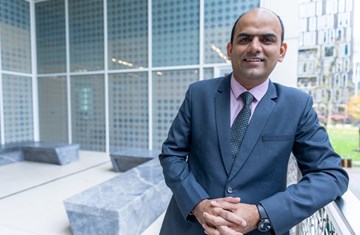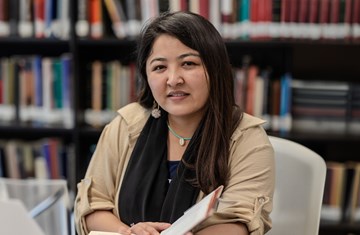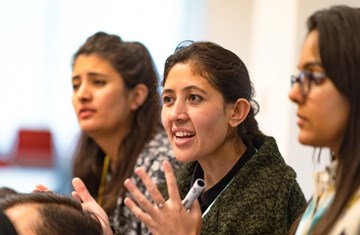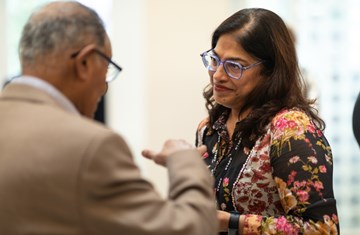Second-year GPISH Students Present Research Project Proposals

Second-year students on the Graduate Programme in Islamic Studies and Humanities (GPISH) presented their MA dissertation research proposals on March 2nd.
In an online session watched by fellow students, teaching faculty, scholars and staff, the 11 students outlined their studies’ topics, research questions, methodologies and limitations. The proposals touched on a broad and diverse range of subjects—women’s rights, refugee studies, religion and development, education, identity, online activism and the Covid-19 pandemic, to name a few—but all reflected the GPISH course’s engagement with some of the most pressing issues in contemporary Muslim societies and cultures.
The proposals prompted discussion and debate among students, teachers and scholars, whose questions and suggestions will now help students to hone the focus of their projects and whose source and reading recommendations will enrich their research.
Students will undertake the data-collection phase of their dissertation projects over the summer and will present their findings later in the year. The Covid-19 pandemic continues to pose a challenge to GPISH students conducting fieldwork but, as with last year’s cohort, students demonstrated their ability to harness skills in research and technology to develop comprehensive, thought-provoking projects despite the current limitations.
In their first two years, GPISH students are enrolled on a Master’s in Islamic Studies and Humanities at the Institute of Ismaili Studies. The course encourages an inter-disciplinary approach to Islamic civilization, and particular attention is given to issues of modernity that arise as Muslims seek to relate their heritage to contemporary circumstances. The programme aims to prepare students for a second Master’s degree at a UK university in their third year, and the research component is a core part of this preparation.
The preliminary titles of the students’ research projects can be found below.
|
Student |
Project Title |
|---|---|
|
Fariah Bakhsh |
Pluralism, Interconnectedness and Covid-19 Crisis: the Perceived Impact of the Virtual “Camp Connect” |
|
Anum-Ameen Hossain |
How Badakhshani Youth Express Resilience While Dealing With Hardships |
|
Anika Amin Kabani |
An Exploration of the Securitisation of Refugees in Pakistan Seeking Resettlement in the US |
|
Dilrabo Khujanazar |
Women’s Mobility Rights and Patriarchy: Contemporary Issues in Tajik Sunni Women’s Context. A Case-Study of Tajik Sunni Female Migrants in Turkey |
|
Ayso Milikbekov |
Phenomenology of Madô in Tajikistan: The Lived-Experience of Madô by the Ismaili Youth of Dushanbe |
|
Sumair Nizamuddin |
Feminist Activism through Internet: The Case Study of Side Entrance and #Mosquemetoo |
|
Shaba-Shabbir Parpia |
Role of Digital Platforms in (Religious) Community Building, Perception and Expression |
|
Zaina Peermohamed |
Stories for Support: A Case Study of the Franklin Bait ul-Ilm (BUI) Special Education Unit In Calgary, Alberta, Canada |
|
Urooj |
Identity Formation among Wakhi Migrants: A Case of the Wakhi Community in New York City |
|
Nabila Walji |
Memory, Time and Place - Urban Identity in Nairobi, Kenya |






